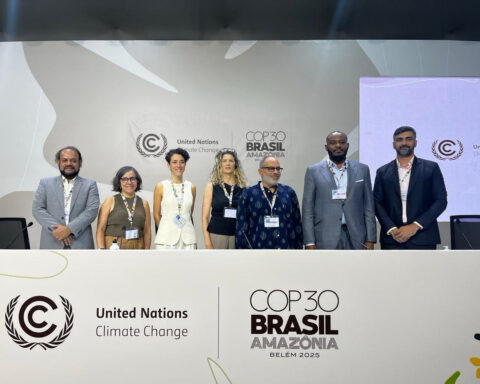Brazil and France have jointly launched a powerful appeal urging all countries to embed ocean-focused action into their Nationally Determined Contributions (NDCs) ahead of COP30, which Brazil is set to host in November.
The Blue NDC Challenge, as the initiative is known, launched at the ongoing United Nations Ocean Conference (UNOC 3) in Nice, aims to make oceans central to global climate ambition.

It was backed by an initial coalition of eight nations, Australia, Fiji, Kenya, Mexico, Palau, Seychelles, France, and Brazil, who are calling for stronger integration of ocean-based climate solutions into national climate strategies.
Marina Silva, Brazil’s Minister for the Environment and Climate Change, said that Brazil’s latest NDC submission explicitly includes ocean-based climate commitments for the first time, such as initiatives to conserve and restore mangroves and coral reefs.
“For Brazil, the Blue NDC Challenge represents a key opportunity to strengthen ocean-related climate action and to emphasise the essential role of ocean-based solutions in achieving emission reduction targets,” she said.
Brazil, where nearly 40 per cent of the national territory lies at sea, is home to the world’s largest contiguous mangrove belt and the only coral reefs in the South Atlantic.
Oceans: Key to Achieving 1.5°C Paris Goal
Nationally Determined Contributions are the backbone of the Paris Agreement, under which countries pledged to limit global warming to 1.5°C above pre-industrial levels. However, with the world off course, a recent UN Emissions Gap Report warned that only a “quantum leap in ambition” can close the emissions gap.
Despite a February 2025 deadline, only 22 of the 195 signatories have submitted enhanced climate plans, including five G20 countries: Brazil, the United States, the United Kingdom, Japan, and Canada.
Ocean-based climate solutions, if fully harnessed, could deliver up to 35% of needed emissions cuts, says Tom Pickerell, global director of oceans at the World Resources Institute.
“But we are running out of time to maximise the ocean’s potential,” Pickerell warned. “Countries must place the ocean at the heart of their climate strategies.”
The call was echoed by President Wavel Ramkalawan of Seychelles, who noted that marine industries and coastal ecosystems remain “underused tools” in fighting climate change.
With Africa’s vast coastline and vulnerable coastal communities, experts say countries like Nigeria cannot afford to be left behind.
Nigeria’s Blue Economy Ministry, established in 2023, must now take bold steps to ensure ocean-based solutions feature prominently in the country’s updated NDCs ahead of the September tally before COP30.
By Dare Akogun








